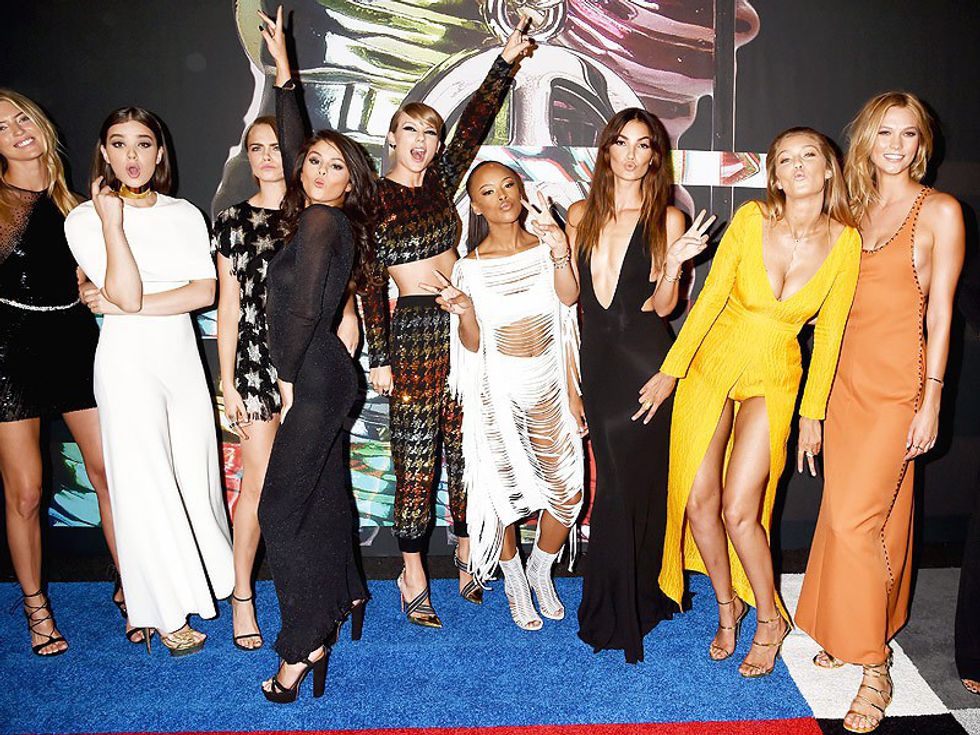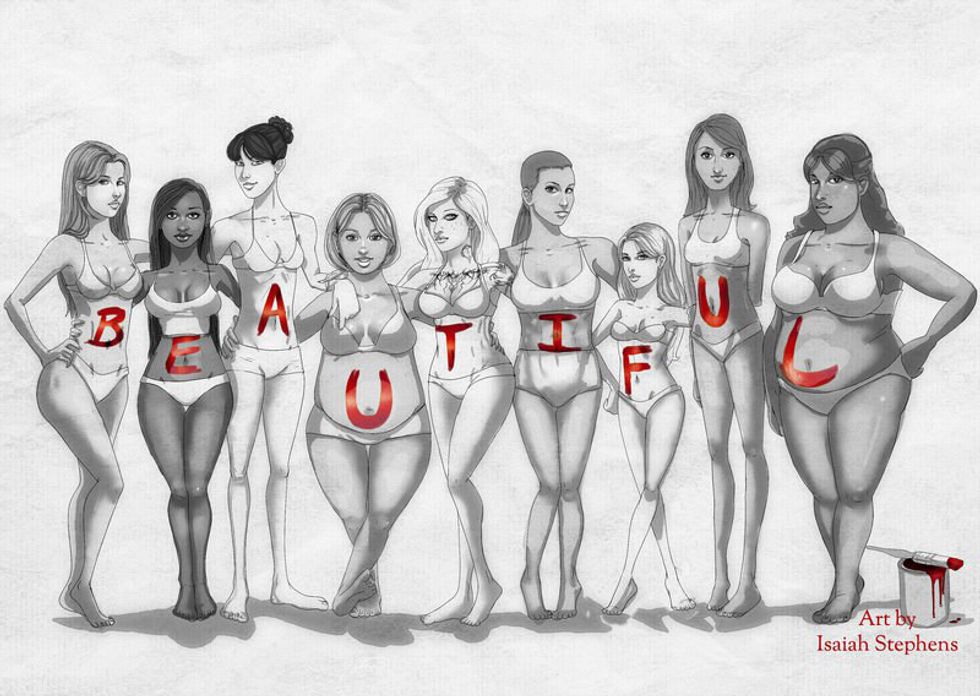This week, Demi Lovato irked me. In an interview with Glamour magazine, the pop singer made some interesting remarks about Taylor Swift and her squad. Her comments read:
"To be honest, and this will probably get me in trouble, I don't see anybody in any sort of squad that has a normal body. It's kind of this false image of what people should look like. And what they should be like, and it's not real."
Riddle me this, Demi. What is a “normal body?” If it’s not slim, then is it curvy? Hourglass? Heck, is it big-boned? There are many different body types across the spectrum. The majority of the population is not shaped in a fashion for any one body type to be considered “normal.” We are all unique, and there is nothing wrong with that. Therefore, Demi, why did you feel compelled to make these baffling comments about these young women who happen to be slender? I found what you said to be problematic, and I am sure Taylor Swift and her squad would “very much like to be excluded from this narrative.”
Ladies and gentlemen, this sheds light on an issue called skinny shaming. Like all forms of body shaming, it needs to stop. No, people should never be ashamed of the way they are shaped. They should not feel pressured to live up to society’s restrictive, nonsensical, “ideal” body type. Of course not. However, my problem with Lovato’s comments is that they were unnecessary. Since when has Taylor Swift or any of her friends promoted that their bodies are what all girls should aspire to look like? Yeah, that’s what I thought. There are naturally slim people in the world. According to Demi’s logic, are they creating a “false image?” Are they “not real?”
As we advocate body positivity, we do not have to poke fun at slim girls to make a point. It is possible to enrich one body type without disheartening another.
I write of skinny shaming from personal experience. Growing up, my peers told me constantly that I was “too skinny.” I have been called a stick, a toothpick and “skin and bones.” People have remarked that I needed to eat more so I can gain a couple of pounds, grow some hips. (Unbeknownst to them, I eat all the time, but my fast metabolism prevents me from keeping weight on). And puh-lease do not get me started on the “real women have curves” mantra. The worst part of this? The sneers were unprovoked. I would never look at a person of size and snap, “You are too big. You need to lose weight.” No, that would be disgusting. Thus, I could not understand why people made unsolicited observations of my size under the guise of compliments or friendly advice, implying that I should want to change the way I am naturally built, the way God made me. Regardless if these comments are intended as insults, they are insensitive, and they certainly do not make a girl feel good about herself.
Do not sharpen your pitchforks at me just yet. I am NOT equating skinny shaming to fat shaming. While they are both gross practices, I understand that the latter is a lot more prevalent than the former. (We can debate the existence of thin privilege another day). I am also not trying to trivialize the struggles that bigger body types face, for I have never experienced them. I do not know what it is like to walk into a retail store and not be able to find my size, or to be told that I cannot partake in certain fashion trends because of my weight, or to not see wholesome representation of my body type on television or in movies.
Exercising any form of body shaming is not promoting body positivity; it is doing the opposite. Empowering one body type should not entail tearing down the spirits of another. Period. Furthermore, there is nothing wrong with focusing on one body type at a time. For instance, if I am scrolling down my Timeline and I see a post celebrating the beauty of bigger women, I am going to comment something like, “Yes, girls, come through!” We do not have to include all body types in every conversation we have about body shaming, but when we do, we should not put those that are unlike our own in a negative light. It does not contribute to our cause. It only turns us against one another.
We can inspire confidence in those that need it. We can highlight the issues that one body type faces without dragging other body types through the dirt. We can lend compassion and empathy to our peers, even if we cannot relate to their experiences. In other words, the whole “eat a cheeseburger" routine? Dead it. The “you can only wear a crop top if you have a flat stomach” tune? Dead that, too. As our mamas drilled into our heads, if you don't have anything nice to say, don't say anything at all.
I'm just saying.























